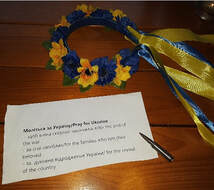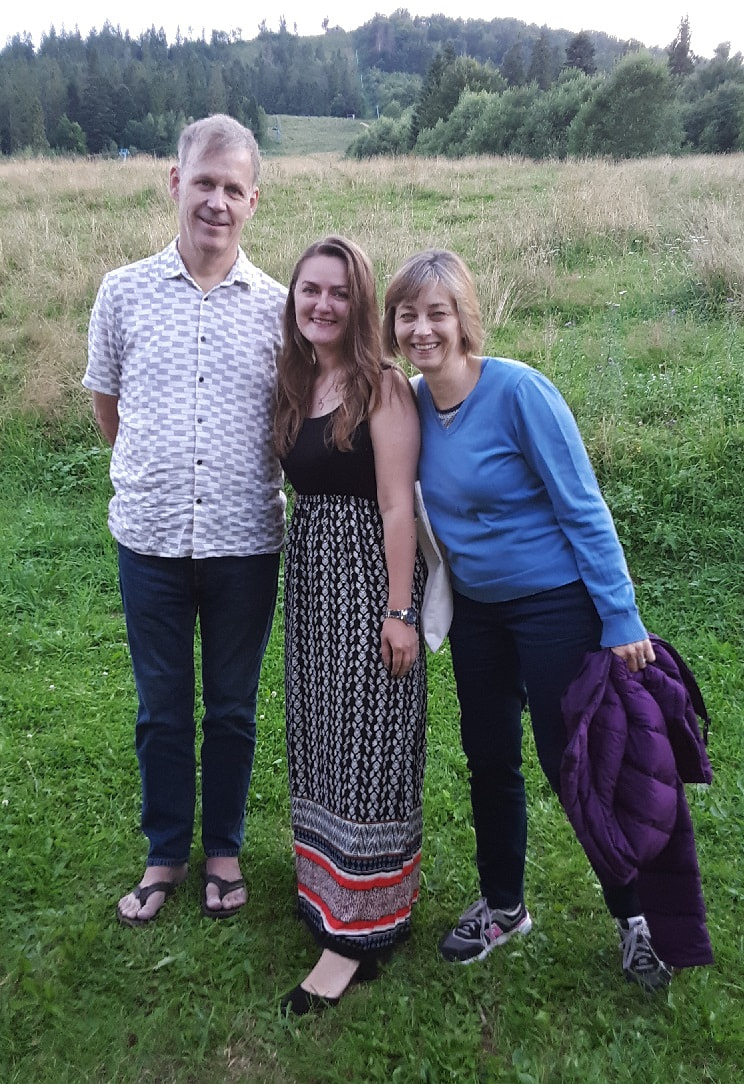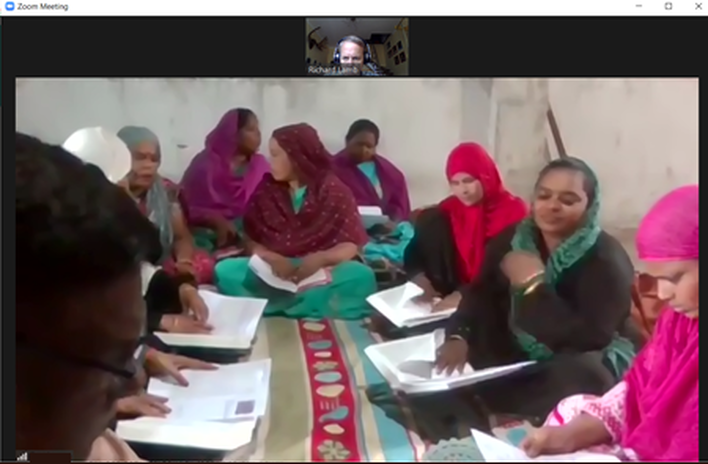|
Arriving in Ukraine was a bit like coming home after three months in quite new-to-us Thailand. We met with dear friends (like Marina pictured above) and joined the Ukraine national staff team for their end of summer staff team conference, where we both taught. While of course it is not home, Ukraine is a place we have spent many weeks for the last 20 years, and many hours connecting with staff on Zoom in the last 1.5 years. We have another month here before we head to Moldova. About three months ago the dean of a Bible college in Nepal where I have taught before asked me (Rich) if I could put together a course he titled, “Mission Amidst the Covid-19 Crisis.” The college was looking to offer timely and relevant help to people trying to keep evangelism and discipleship ministries moving forward in a changing context. I told the dean that I was not actually leading a church or ministry during the COVID crisis, and did not feel I could give out time-tested answers to this question, but I said that if I were to attack this issue, I would look for contemporary readings about leadership during change and crisis, and mainly look for Biblical examples of “leadership when you don’t know what to do.” The dean was happy with my approach, and so the first day we arrived in Ukraine I began teaching the new course for one college in Nepal. I will also teach the same course for another college in Malaysia in September. One passage that came to my mind during that initial call is the story when King Jehoshaphat of Judah was told that a huge army of several smaller states was united and marching upon Judah, to attack it. This happens when Judah is much diminished in power from the mighty days of Kings David and Solomon, and Jehoshaphat knows he doesn’t have military power that could possibly meet the threat. The scripture commentary in this chapter puts it bluntly: “Jehoshaphat was afraid.” So he seeks the LORD and asks all Judah to join him. The surprising part of the story is when he has everyone gathered and he has the microphone—they are all looking at him expecting kingly leadership. This would be the time battle leaders encourage the troops, a la Aragorn: “A day may come when the courage of men fails, when we forsake our friends and break all bonds of fellowship, but it is not this day!” But instead, Jehoshaphat says, “we do not know what to do,” and he both looks to the LORD and encourages the people to do so as well. The second surprise is that he allows God to speak, not through him, but rather through the priest Jahaziel, who brings an encouraging word of promise that God will indeed fight for his people, if they trust him to. If they are willing to go out to face the enemy, God will show them his victory. This they do, but it is surprising that, in this crisis time, Jehoshaphat leads the people not by knowing what to do, but by knowing how to lead people into trusting God despite not knowing how God will work. This is a good picture of leadership in a time of crisis and chaotic change. The pandemic is a new situation, and we really don’t really know what to do. But we can make space for God to work, for God to speak, for God and others to lead and show the way, and we can follow with courage and boldness when he opens the door and shows us. Leaders willing to acknowledge that they don’t quite know what to do would be refreshing and powerful in this age. The Indian Women’s Jamaat Leaders Update I have continued to lead a Bible study with Muslim-background believing women who lead jamaats, or Bible studies, for other Muslim-background women in a city in India. My friend R______ has been working with and training these leaders for several years and their ministry is really growing. My focus is really training R____ to use the Urdu translations of the Sketches of Leadership his team has produced, so he can continue using them beyond the work we do together. Two weeks ago I was doing a Bible study on “Asking Good Questions,” looking at how Jesus asked questions of people who came to him for healing. It involved training on good questions, open-ended questions that draw other people out. At the end of the session I suggested that everyone go back to their husbands and ask “What was the best part of your day today?” After R_____ translated my suggestion to them, they all burst into laughter. I had no idea what was funny, so R_____ explained after they quieted a bit that even the notion of their asking their husbands any question was funny to them. They hadn’t ever considered doing that. The social distance between husband and wife, in Muslim India especially, is very great. It might for us feel odd to ask such a personal question to a distinguished professor or to our medical doctor while he is examining us. It might seem impertinent. So they hesitated, but the women in this leadership training Bible study are good students of the word, and soft-hearted, and to a one they applied the study by asking their husbands about the best part of their day. When we next met, they reported their husbands’ responses.
What’s ahead for us: Well, like Jehoshaphat, we are not entirely certain of that! We know roughly what we will be doing for the fall, as we both have full plates of teaching in Malaysia, Nepal, India, and elsewhere, but our location past September is not fully decided, as we weigh a few factors, from invitations to ministry to Covid trends. We ask for your prayers as we seek God’s guidance for our next homes when our time in Lviv comes to an end in a month’s time.  Please pray for Ukraine.This prayer station, one of several at the conference, reminded us that the war is ever-present in Ukraine, and sons of Ukraine are dying at the hands of an invading force from Russia. The gold and blue streamers and flowers are from Ukraine’s flag, and the sunflower is Ukraine’s national flower.
0 Comments
Leave a Reply. |
Archives
April 2024
AuthorRich and Lisa Lamb Categories |


 RSS Feed
RSS Feed